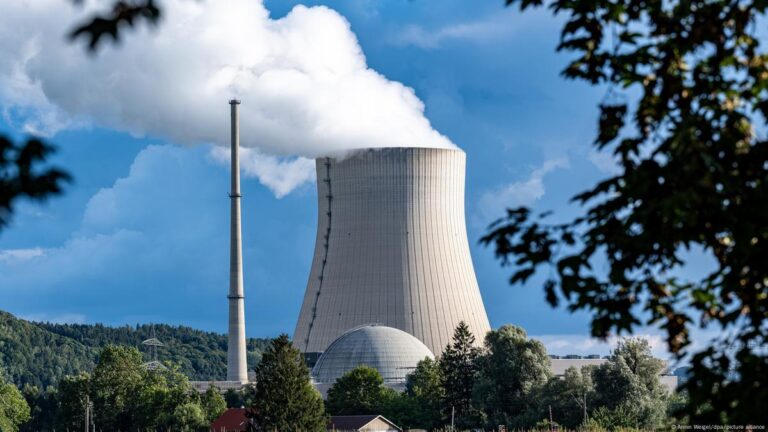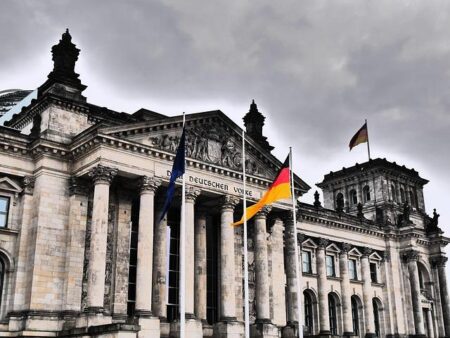Germany has taken a significant step by formally participating in the European nuclear alliance as Italy expands its membership, marking a notable shift in the continent’s strategic defense landscape. This development underscores growing cooperation among EU nations to bolster collective security amid escalating geopolitical tensions. As Italy swells the ranks and Germany assumes a more active role, questions arise about the future of nuclear deterrence and the implications for Europe’s defense policies.
Germany Adopts Observer Role as Italy Expands Its Commitment to European Nuclear Cooperation
In a move signaling cautious engagement, Germany has shifted to an observer status within the emerging European nuclear cooperation framework. Rather than deepening its operational role, Berlin appears intent on maintaining strategic oversight without direct involvement in the alliance’s growing energy initiatives. This stance reflects Germany’s complex energy transition goals, balancing its commitment to renewables with a pragmatic acknowledgment of nuclear power’s role in securing Europe’s energy future.
Meanwhile, Italy is fortifying its position as a key player in European nuclear collaboration, dramatically expanding its investments and cooperative efforts. Rome’s escalating involvement is underscored by a multifaceted approach encompassing research, technology deployment, and regulatory development. This expansion signals Italy’s ambition to not only diversify its energy mix but also assert influence in shaping the continent’s nuclear agenda moving forward.
- Germany: Observer status, energy transition prioritization
- Italy: Increased funding, technology sharing, regulatory leadership
- Alliance goal: Strengthen energy security and technological innovation
| Country | Role | Key Commitment |
|---|---|---|
| Germany | Observer | Monitoring and advisory |
| Italy | Full Member | Funding & tech development |
| France | Leader | Operational coordination |
Implications for Regional Security and Energy Policy in the Wake of Italy’s Alliance Participation
Italy’s recent decision to join the European nuclear alliance marks a pivotal shift in the continent’s geopolitical landscape, signaling a renewed emphasis on collective energy security amidst escalating global tensions. This alliance not only reinforces Italy’s commitment to sustainable nuclear energy but also reshapes strategic defense postures within Europe. As Germany assumes a supporting role, it highlights a deeper transnational collaboration aimed at protecting nuclear infrastructure and ensuring uninterrupted energy supplies. Such alignment underscores a mutual understanding that energy independence and security are increasingly intertwined with regional stability.
The alliance’s impact extends to multiple facets of policy and strategy, including:
- Strengthened deterrence: Coordinated efforts to safeguard nuclear assets against cyber and physical threats.
- Energy diversification: Enhanced nuclear collaboration reduces reliance on volatile fossil fuel markets.
- Policy harmonization: Aligning regulatory standards to facilitate safer and more efficient nuclear technologies.
- Innovation boost: Shared research initiatives accelerating breakthroughs in nuclear safety and waste management.
| Aspect | Before Italy’s Entry | After Italy’s Entry |
|---|---|---|
| Energy Security Index | Stable | Improved |
| Nuclear Regulatory Alignment | Low | Medium |
| Regional Defense Coordination | Fragmented | Consolidated |
| Innovation Collaboration | Limited | Expanding |
Strategic Recommendations for Germany to Enhance Influence Within the Evolving European Nuclear Framework
To solidify its position within the burgeoning European nuclear alliance, Germany must adopt a multifaceted strategy that balances national interests with broader continental objectives. Prioritizing collaboration on research and development will enable Germany to harness cutting-edge technologies, particularly in next-generation reactors and sustainable fuel cycles. Strengthening partnerships with key EU players, including Italy, France, and the Netherlands, is essential to foster a unified approach to nuclear energy governance and regulatory frameworks. Such alliances would also help Germany navigate public skepticism by demonstrating clear commitments to safety and environmental sustainability.
Moreover, Germany should invest in skill development and workforce training to underpin the nuclear sector’s expansion, ensuring a pipeline of qualified experts. Emphasizing innovation through funding mechanisms targeted at small modular reactors (SMRs) and digitalization can distinctly elevate Germany’s role in shaping the EU’s nuclear future. The table below highlights priority areas and actionable steps that Germany can undertake to enhance its influence:
| Priority Area | Action Item | Expected Impact |
|---|---|---|
| R&D Collaboration | Joint projects & tech-sharing with EU allies | Accelerated innovation & cost reduction |
| Policy Leadership | Shape EU-wide safety standards and regulations | Stronger harmonization and trust |
| Talent Development | Expand nuclear education and professional training | Robust skilled workforce |
| Investment in SMRs | Funding and pilot programs for modular reactors | Flexible, scalable nuclear capacity |
Concluding Remarks
As Italy’s commitment to the European nuclear alliance marks a significant step in bolstering the continent’s defense framework, Germany’s decision to participate as an observer signals a cautious yet strategic engagement with the evolving security landscape. With Europe increasingly seeking collective responses to emerging threats, the developments underscore a shifting paradigm in regional cooperation and nuclear deterrence. Observers will be watching closely to see how these alliances influence the balance of power and the future of European defense policy.




